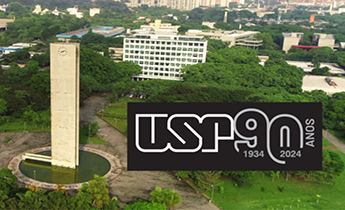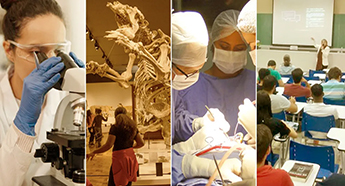Na próxima sexta-feira, 20 de abril, às 10h30, no auditório do Instituto de Física de São Carlos (IFSC/USP) “Professor Sérgio Mascarenhas”, ocorrerá mais uma edição do Colóquios IFSC, que será ministrado por Dominik Zumbühl, com a palestra “Spins and Orbits in Semiconductor Nanostructures”.
Segue abaixo o resumo do colóquio:
Spins in semiconductors offer themselves for spintronics and are leading candidates for quantum com-puting. In this colloquium, I will present recent experiments studying the physics of semiconductor spins. The spin relaxation time T1 sets a fundamental upper bound for the coherence time and e.g. the spin readout fidelity. Already 15 years ago, it was predicted that at low magnetic fields, the dominant mechanism is the coupling to the nuclear spins, where the relaxation becomes isotropic and the scaling changes to T1 ∝ B^-3. We establish these predictions in a GaAs quantum dot [1], by measuring T1 over an unprecedented range of fields – made possible by lower temperature and control over the field direction – and report a T1 = 57 ± 15 s, setting a new record for the spin lifetime in a nanostructure.
It is easy and elegant to think of the spin alone as the crucial carrier of the qubit’s information. However, the spin is hosted by the electron which also has charge together with its quantum orbitals. The spin-orbit and hyperfine interactions heavily depend on the orbitals, and this dependence can be exploited to control both spin relaxation and electric-dipole spin resonance for coherent manipulation. So far, there is no direct method to determine the dot shape. We present a non-invasive technique [2] able to reconstruct the shape and orientation of the orbitals, based on measuring the orbital energy spectrum dependence on in-plane magnetic field of varying magnitude and direction. This allows to resolve the full 3D confinement of a single-electron quantum dot with sub-nm precision.
Finally, I will also present how we can stretch the persistent spin helix, i.e. helical spin patterns with continuously variable pitches [3]. Further, we exploit the spin helix symmetry to derive a closed-form expression for the weak localization magnetoconductivity – the paradigmatic signature of spin-orbit coupling. We present a reliable method to extract all parameters from fits to the new expression, obtaining excellent agreement with other experiments. This provides experimental confirmation of the new theory, and advances spin-orbit coupling as powerful resource in emerging quantum technologies.
O Colóquios IFSC é um evento semanal promovido pelo IFSC/USP, e é aberto a todos os interessados, não sendo necessária inscrição prévia para participação. Os colóquios são também transmitidos ao vivo pela IPTV USP.
Para acompanhar a programação do Colóquios IFSC, acesse http://www.ifsc.usp.br/coloquio/
Por Assessoria de Comunicação do IFSC



